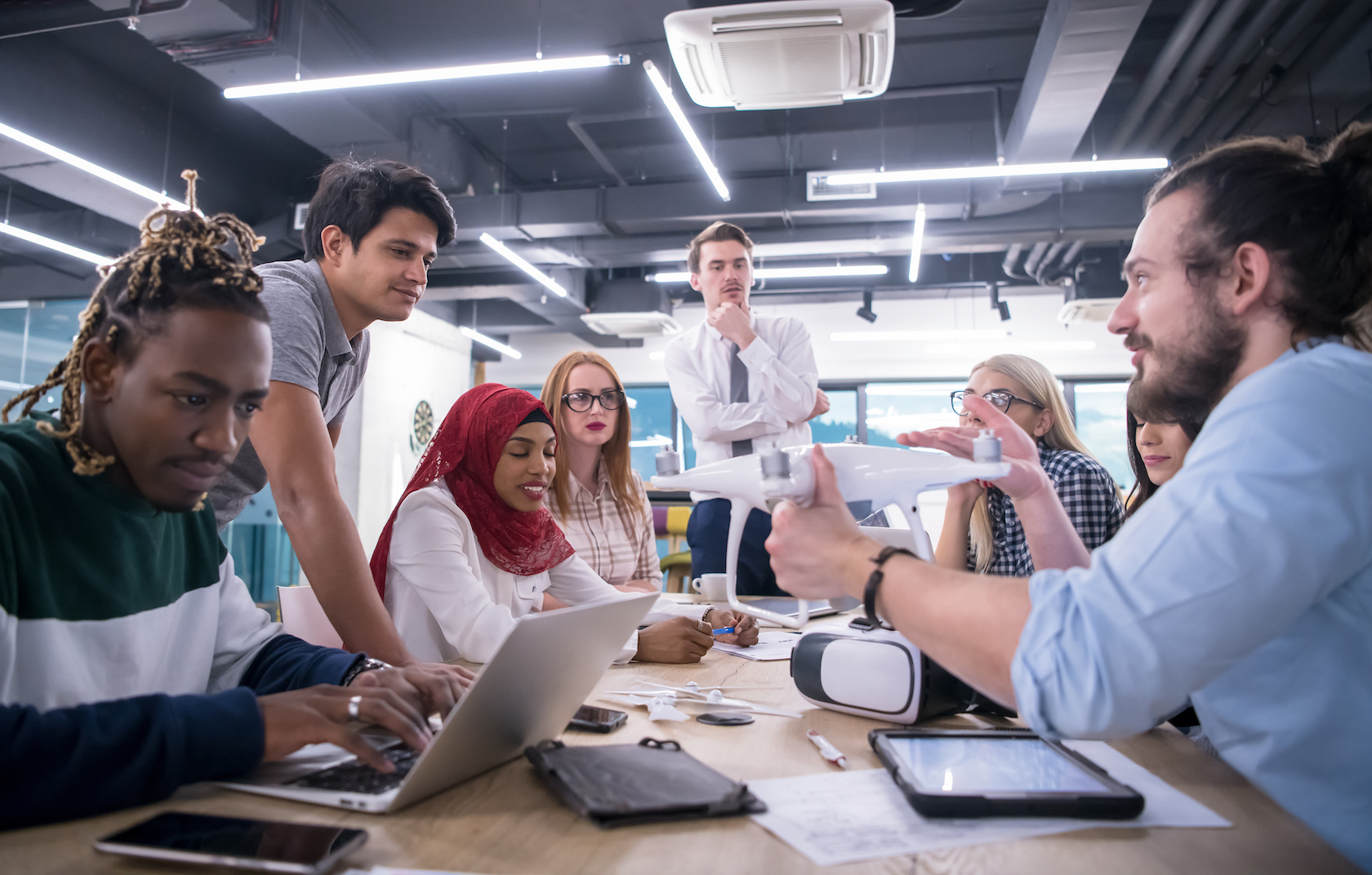OLC’s Framework on Storying Digital Change Work is Recognized in United Nations Education Scientific And Cultural Organization’s (UNESCO) International Database
The OLC report, “Advancing Universal Access to Quality Digital Learning Through Global Coalitions and Narrative Practices”, is now featured in the prominent United Nations Educational, Scientific and Cultural Organization (UNESCO) database for the 3rd UNESCO World Higher Education Conference (WHEC2022).
Published as an open knowledge product to be widely and freely accessible, this playbook helps educators document their current progress while roadmapping future initiatives. OLC’s framework was designed in alignment with all 17 UN Sustainable Development Goals, including Quality Education.
“Our report serves as a concise guide to address the needs of educators seeking to ensure that online, blended, and digital learning is equitable within their own local contexts,” said OLC Director of Community Strategy and Engagement Madeline Shellgren. “It provides models for professional learning, partnership, and collaboration on digital learning change work through global coalitions.”
Indeed, the report’s framework emphasizes collaboration with educators’ local and global communities in order to create quality, equitable digital education at any scale. This includes individual digitally-mediated courses as well as those across online programs and within institutional, system-wide, and countrywide digital strategies.

Advancing Universal Access to Quality Digital Learning
In this two-part report, OLC shares a pair of case studies of digital learning change work in support of the advancement of the United Nation’s Sustainable Development Goals. Beyond the application of the fourth goal (Quality Education), both sections of the report detail how all 17 of the goals were leveraged, using digital and collaborative storytelling, rhetoric, metaphor, and other practices to increase understanding, empathy, and impact across globally-situated communities of practice.
Part 1 – “Developing an International Leadership Institute on Global Coalition Building and Digital Learning Change Work” discusses the conception, design, and development of the Institute for Emerging Leadership in Online Learning (IELOL) Global, an ecosystem with an international leadership academy that builds global partnerships to increase access to quality education worldwide.
Part 2 – “Creating a Narrative Framework for Advancing Digital Learning Equity” presents the OLC’s process for developing an interactive tool for capturing and sharing the stories of digital learning leaders to address locally contextualized challenges related to online, blended, and digital learning. OLC has created an open framework that anyone can use, remix, and redistribute on storytelling digital change work.
“All educators working across a multitude of modalities and contexts are invited to explore the action-oriented approaches shared within this report. Whether you are new to digital learning or global coalition building, this report will help you to create a foundation for quality and equitable digital education at any scale,” said OLC Chief Executive Officer Jennifer Mathes, Ph.D.
Indeed, the report spans an important cornerstone of OLC’s breadth of planning and resources for online and blended learning change-makers. This focal case study details the OLC’s IELOL Global Institute for Emerging Leadership in Online Learning (IELOL) ecosystem, which encompasses expansive programming and virtual events to create intentional spaces for leaders around the world to collaborate and advance best practices in their field.

Taking Action With Us
To view the full report, please visit the UNESCO World Higher Education Conference website (or access the report directly). Persons interested in working with the OLC on these important issues can apply to the OLC’s IELOL Global’s Core Program, register for the now fully asynchronous IELOL Regional Colloquy and contribute to OLC Global using the interactive version of the storytelling framework.
About the UNESCO WHEC2022 and the Call for Knowledge Contributions
This report is elaborated and disseminated as a contribution to the 3rd World Higher Education Conference (WHEC) organized by UNESCO on May 18-20, 2022, with the purpose of enhancing the contribution of higher education institutions and systems world-wide, under the 2030 Agenda for Sustainable Development, its pledge to leave no one behind, and looking at the Futures of Education. The content of this publication does not necessarily express the views of UNESCO or its Member States.
WHEC2022 issued a global invitation to organizations and alliances that wished to produce and share knowledge, research, practices, and impactful ideas to enhance higher education institutions and systems, locally and internationally. The invitation for submissions and the following review process was open to diverse entities (within and outside the UN system) willing to establish a partnership with UNESCO under the purpose and main themes of the WHEC2022.
Through its participation in WHEC2022, this OLC report is an open invitation and call-to-action to global educators and advocates to join in the efforts documented here, both in sharing their individual stories and amplifying the stories of those whose wisdom will otherwise be lost.
References:
Shellgren, M., Gunder, A. (2022). Advancing universal access to quality digital learning through global coalitions and narrative practices. Online Learning Consortium.
For more information and to get involved with the OLC, please contact madeline.shellgren@onlinelearning-c.org.

